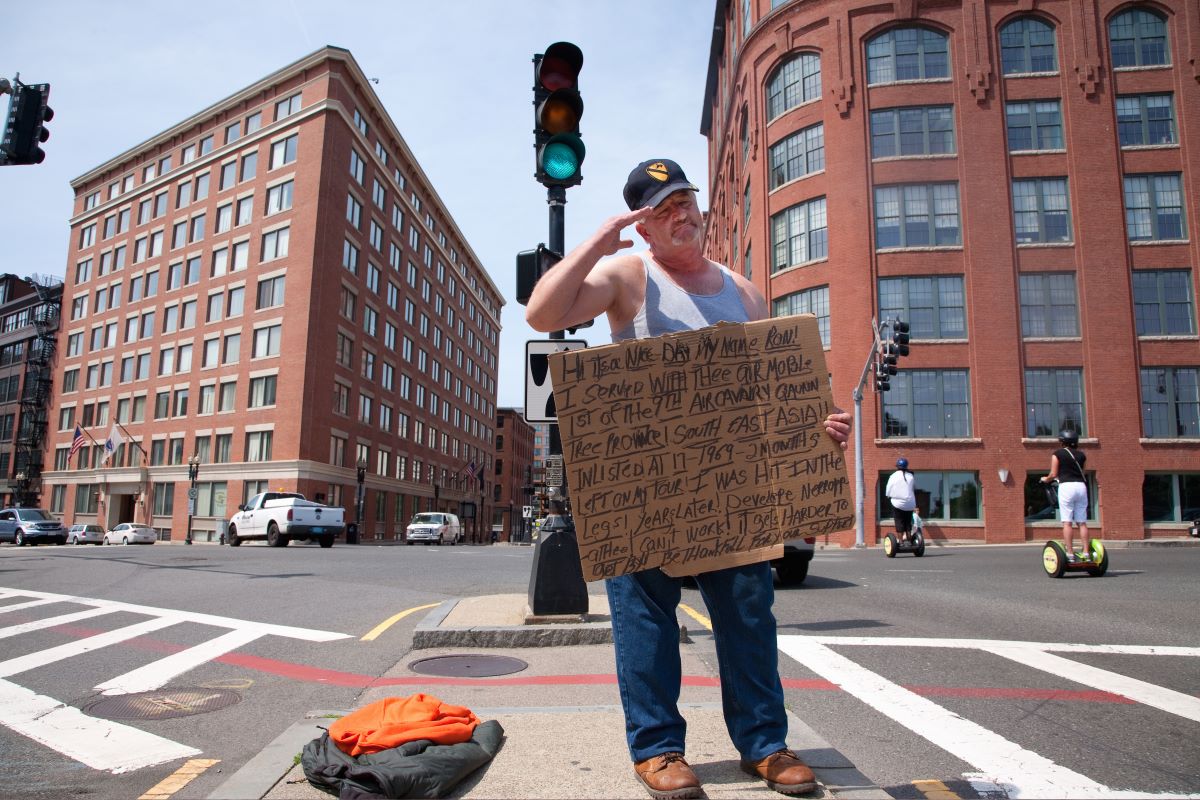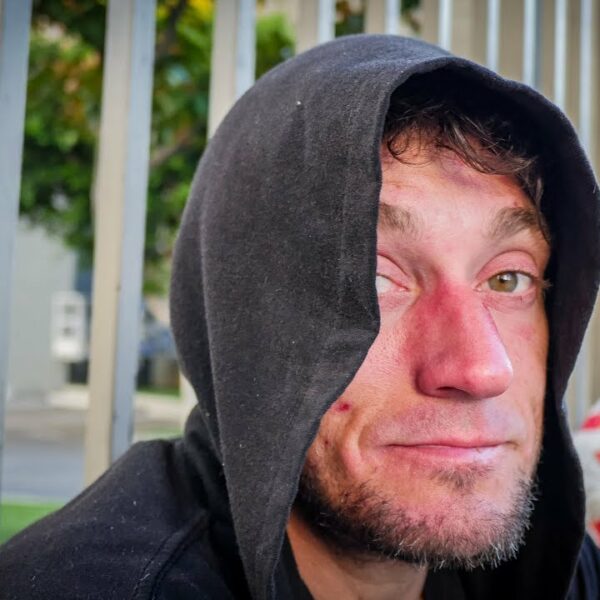The homeless crisis has been brewing for quite some time under the surface of America. It has been a quiet but expanding emergency, like a pot with a lid under pressure. People are finally waking up to the severity of the problem and seeing it for what it is.
As a nation, we are generally handling the homeless crisis poorly, which is why it only continues to increase. However, certain subsects of homelessness were improving. One was veteran homelessness, which was trending down … until now.
Veteran Homelessness Increased by a Whopping 7.4% Between 2022 and 2023. This Is the Highest Jump in Years.
The Department of Housing and Urban Development’s 2023 Point-In-Time Count, deemed by most experts to be a drastic undercount, concludes that veteran homelessness shot back up between 2022 and 2023 after years of decline. The increase in that calendar year alone was at least 7.4% nationwide.
To put things into perspective, we saw a 4% reduction in veteran homelessness in the three most recent previous counts. Additionally, since 2010, we have practically cut veteran homelessness in half, a statistic often touted at the poles.
Now, we are witnessing an increase in both sheltered and unsheltered veteran homelessness, the latter of which accounts for 80% of the increase above.
“It’s really not easy to overcome all of the obstacles that are put in place to get a home again,” said Ken, a homeless San-Diego-based veteran who gave an eye-opening interview with Invisible People.
Astronomical Rent Increases and the Loss of COVID-Era Protections Are Cited as Underlying Causes
In 2023, new obstacles have been introduced, and old obstacles have come back to haunt us as shantytowns of veterans emerge on the street corners of most American cities. Experts point to several key components that appear to be driving the increase. Among them are:
- The lack of affordable housing in general
- Skyrocketing rental rates
- Lower acceptance rates for veteran housing vouchers
- The loss of pandemic-era protections
- The lack of homeless assistance resources and more
Did We Fly a Flag of Victory Too Soon?
One year ago, we celebrated when the Department of Veterans Affairs permanently housed 40,401 homeless Veterans, surpassing its goal of providing 38,000 homes to former soldiers in need. Still, the effort fell short, and homelessness grew as more veterans fell into homelessness than were rescued from it.
Beth Sandor of Community Solutions, who boasts a 20-year track record of assisting homeless populations, particularly veterans, gave the following insight to Invisible People:
“I think, overall, whether it’s veteran homelessness or other types of homelessness nationally, these increases that we’ve seen are tied to larger systemic issues – the end of COVID relief funding, inflation, rising housing costs, stagnant wages, etc.,” she said. “But despite those headwinds, some communities have made measurable progress in reducing veteran homelessness.”
“I think we’re seeing communities like Detroit who not only reduced overall homelessness by 12% despite those headwinds but also reduced general homelessness by 70% since 2015,” she continued. “And between 2020 and 2022, they saw a 50% reduction. So, I think there are still some positive examples.”
“When we look at what those communities are doing, the real partnership between all of the key agencies, including the public housing authority, the local city and county, and entities, the continuum-of-care providers, the local landlord community, etc., we find they are using a combination of real-time data and their understanding of who’s experiencing homelessness both on the streets and in shelters to drive the interventions,” Sandor continued. “Bringing people with lived experience to the table to be part of those conversations and part of the decision-making is vital. As is asking important questions.”
When prompted to detail which questions, Beth continued with a varied list:
“What would it take to go from a 60% utilization rate around a HUD VASH to a 90%? What are the barriers getting in our way? How can we bring the right partners to the table who could clear the path on those obstacles?”
“There has been this historic bipartisan investment in resources allocated toward solving veteran homelessness. And so, the path is there on ending veteran homelessness nationally, and it’s really just up to us collectively to come together around these shared goals, to use the data and continue to move that work forward,” she concluded.
Right now, the data suggests we have taken several steps backward toward solving veteran homelessness.
Talk to Your Legislators About Getting Back on Track
Nobody who signs up to fight for their country should return to US soil and have to fight for basic human rights like housing. But there’s a catch. Housing isn’t currently legislated as a human right, which is the main reason so many former soldiers are denied it.
Talk to your local legislators about drafting laws that protect the homeless community and prevent veteran homelessness by making housing a constitutional, irrevocable human right.












